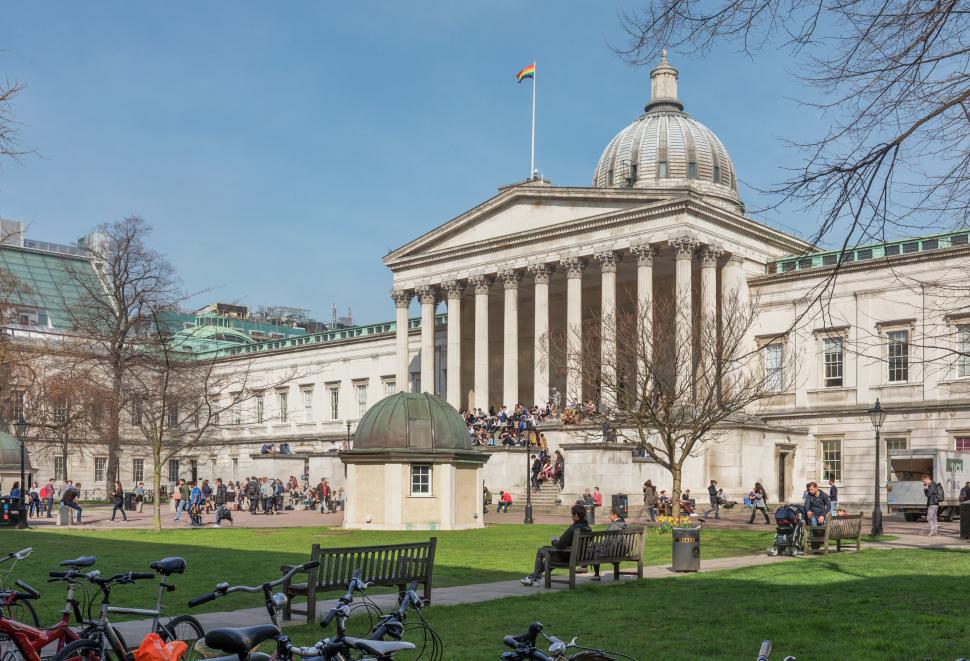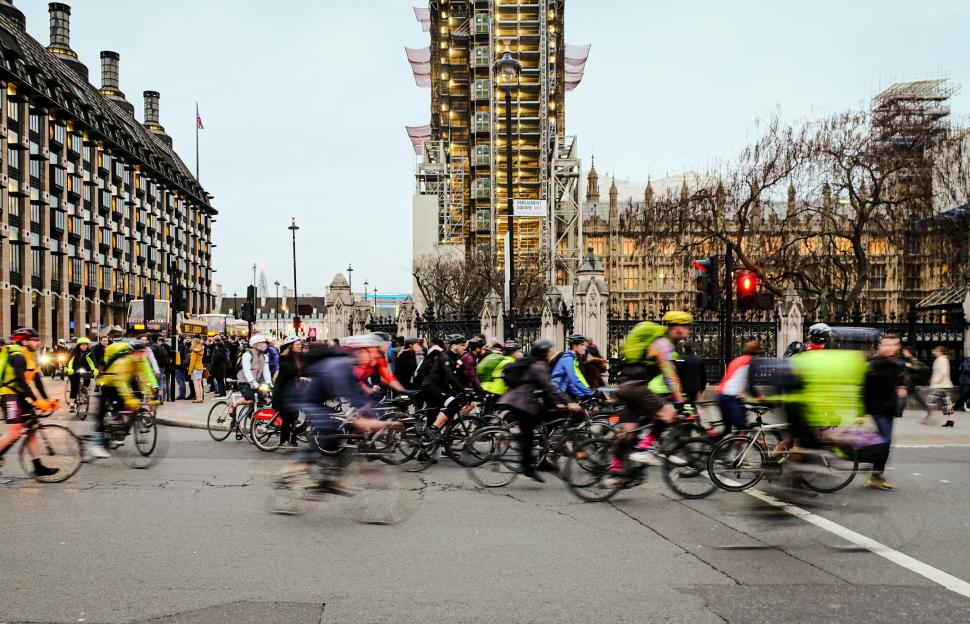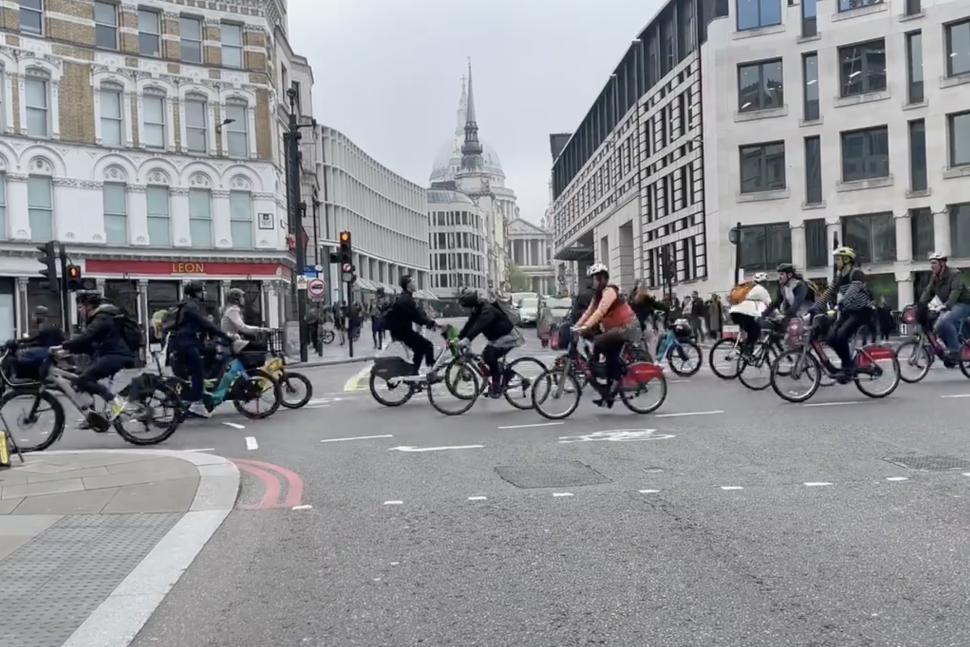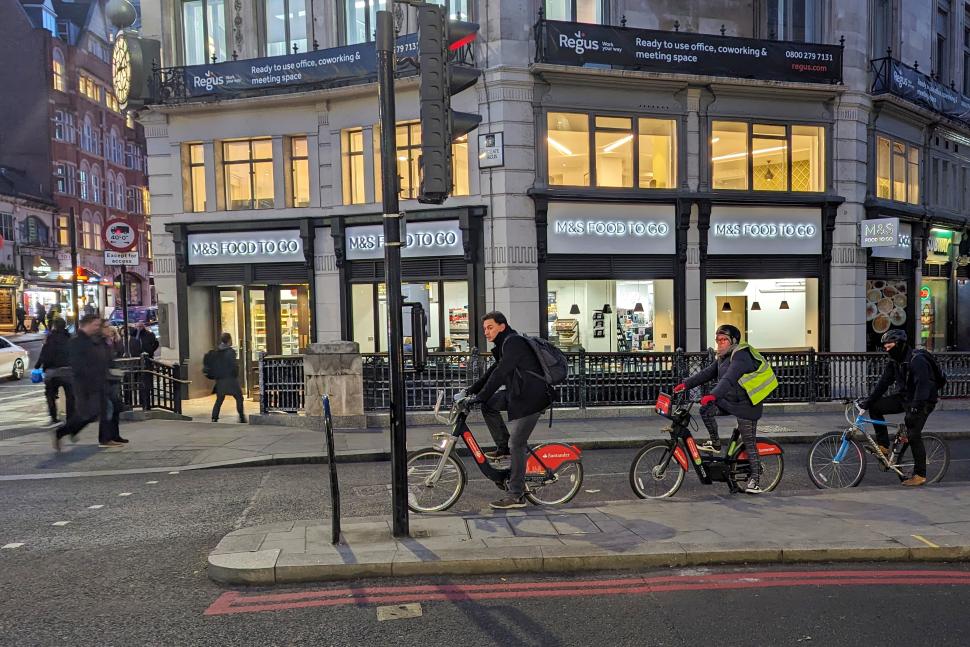- News
- Reviews
- Bikes
- Components
- Bar tape & grips
- Bottom brackets
- Brake & gear cables
- Brake & STI levers
- Brake pads & spares
- Brakes
- Cassettes & freewheels
- Chains
- Chainsets & chainrings
- Derailleurs - front
- Derailleurs - rear
- Forks
- Gear levers & shifters
- Groupsets
- Handlebars & extensions
- Headsets
- Hubs
- Inner tubes
- Pedals
- Quick releases & skewers
- Saddles
- Seatposts
- Stems
- Wheels
- Tyres
- Tubeless valves
- Accessories
- Accessories - misc
- Computer mounts
- Bags
- Bar ends
- Bike bags & cases
- Bottle cages
- Bottles
- Cameras
- Car racks
- Child seats
- Computers
- Glasses
- GPS units
- Helmets
- Lights - front
- Lights - rear
- Lights - sets
- Locks
- Mirrors
- Mudguards
- Racks
- Pumps & CO2 inflators
- Puncture kits
- Reflectives
- Smart watches
- Stands and racks
- Trailers
- Clothing
- Health, fitness and nutrition
- Tools and workshop
- Miscellaneous
- Buyers Guides
- Features
- Forum
- Recommends
- Podcast
 University College London (Photo by DAVID ILIFF. License: CC BY-SA 3.0)
University College London (Photo by DAVID ILIFF. License: CC BY-SA 3.0)"Accelerate efforts to eradicate cyclist deaths," demand campaigners from major London universities calling for action on road safety
Figures from London's major universities have come together to demand action on road safety to protect cyclists and pedestrians, one campaigner now suggesting that road danger has become a "safeguarding issue" for universities after two staff and a student were killed while cycling in the city in less than a year.
Raising awareness of the situation in the Evening Standard, it is reported that the London School of Economics will host a public meeting on "a safer future for cycling in London" next week, with London's Walking and Cycling Commissioner Will Norman due to speak.
It follows the deaths of PhD student Cheistha Kochhar and member of staff Gao Gao who were both killed while cycling in London, as well as fellow member of staff Adeline Stuart-Watt who was killed while crossing a road. London College of Contemporary Music student Harry Webb was also killed while cycling in east London in September 2023, in an alleged hit-and-run, all the incidents mentioned above coming less than a year apart.
Speaking to the Evening Standard, Anika Heckwolf, a policy fellow at LSE's Grantham Research Institute and a former colleague of Ms Stuart-Watt explained how "we thought it was time for London's academic institutions to come together to speak up on this issue", suggesting road danger had now become a "safeguarding issue" for universities to consider.
"We felt these efforts are often quite 'silo-ed' within universities, and thought it was really important to bring universities together and have a cross-university network on cycling safety," she said.
"We also have a strong interest in ensuring London remains an attractive place to live and study and work. Other cities are increasingly investing in cycling infrastructure, like in Paris. London needs to keep up to remain attractive.
"What we envisage is three or four-fold: raising awareness of the importance of the issue; encouraging universities to engage with local authorities and the mayor on this topic; and sharing expertise between universities and people in universities advocating for change. We also think that London universities can be part of the broader public conversation around active travel.
"Many students would like to cycle to save money, but don't dare to. We have seen progress from TfL, from Sadiq Khan, but more needs to be done."
It was revealed that academics and students from all of London's major universities, including LSE, Imperial College, King's College, UCL and Queen Mary University of London had held initial talks on uniting behind a campaign.
Last week, new research suggested that 90 per cent of people are scared of cycling in UK cities, with fear of collisions, road rage and theft putting people off.
Calling the findings a "wake-up call", bike subscription provider Swapfiets said "it's clear that current efforts aren't enough" and urged government "to not only reinstate but increase the active travel budget".
Having won this summer's general election, the newly elected Labour government said it would invest "unprecedented levels of funding" in cycling, as well as develop a new road safety strategy.
New Transport Secretary Louise Haigh said access to safe cycle routes is "essential" for tackling our carbon footprint and pointed to the "hundreds of thousands, if not millions" of GP appointments that could be reduced each year through active travel investment.
Haigh's comments came in the same month it was revealed that average cycling distances in England had fallen to the lowest levels in a decade. According to the Department for Transport's National Travel Survey, people in England averaged 47 miles by bike in 2023, a 17 per cent drop on the previous year and just over half the distance recorded in 2020, while car trips continued to climb.
With that said, in December it was revealed that Department for Transport figures showed London cycling journeys are up 20 per cent compared with before the Covid pandemic — with 4.5 per cent of all London journeys now made by bike, an estimated 1.26 million journeys per day.
[Main image by DAVID ILIFF. License: CC BY-SA 3.0]
Dan is the road.cc news editor and joined in 2020 having previously written about nearly every other sport under the sun for the Express, and the weird and wonderful world of non-league football for The Non-League Paper. Dan has been at road.cc for four years and mainly writes news and tech articles as well as the occasional feature. He has hopefully kept you entertained on the live blog too.
Never fast enough to take things on the bike too seriously, when he's not working you'll find him exploring the south of England by two wheels at a leisurely weekend pace, or enjoying his favourite Scottish roads when visiting family. Sometimes he'll even load up the bags and ride up the whole way, he's a bit strange like that.
Latest Comments
- ErnieC 5 min 10 sec ago
Good man, well done!
- bluezurich 45 min 18 sec ago
I watched it all on Tiz for free with no ads.
- David9694 5 hours 56 min ago
+1 on saddle height and also check your lateral alignment - everything should be straight and aligned. My bike fit years ago moved my feet to the...
- froze 6 hours 18 sec ago
Everything Lezyne sells are really good, especially their pumps, and the Torque Drive. ...
- wtjs 6 hours 44 min ago
It's not only the UK which suffers from vile louts-VdP is a great athlete who deserves respect!
- Hirsute 7 hours 19 min ago
https://www.youtube.com/watch?v=wOzP87HVCWw
- Rendel Harris 8 hours 46 min ago
Apart from the fact that you're completely wrong - Decathlon is a French company and has 1045 stores in Europe compared to 50 in the UK - whilst...
- hawkinspeter 10 hours 51 min ago
Finally tried out the Smart Lever that I did get for Xmas as I had a suspicious looking bubble/bump on my rear GoodYear tyre (don't think I'll buy...
- pockstone 11 hours 17 min ago
Suitable reply, No Reply.
- chrisonabike 13 hours 54 min ago
Further motoring exemptions have been highlighted by a certain celebrity lawyer: needing the loo, being a well-known footballer...



Add new comment
2 comments
Road safety has been an issue worldwide for decades. There are ways to reduce casualties. It'd save the country money to introduce more of these, not to mention cutting the human toll.
Yeah... unfortunately though many people * agree there is a problem we have mostly disqualified ourselves from finding effective solutions because that would mean addressing the root cause... (which we can't even see sometimes, or we can but we simply can't conceive of another way [1] [2] [3]).
But it's a rather large elephant (or - millions of elephants) and several generations of living with them have transformed so many aspects of society / government / the built environment to fit. So it's hard for one person, or one group, to touch multiple parts.
Of course there are very powerful reasons why we don't clearly see the elephants, or we want to keep *some* of the good parts and only get rid of the down-sides, or just accept them etc.
There are many groups who do get it and campaign for change of course (two immediately come to mind - Roadpeace and the Road Danger Reduction Forum).
* Except "we've got no problems here; this meddling is a waste of money which should be spent on sorting out the congestion / building more car parking / filling in pot holes..."